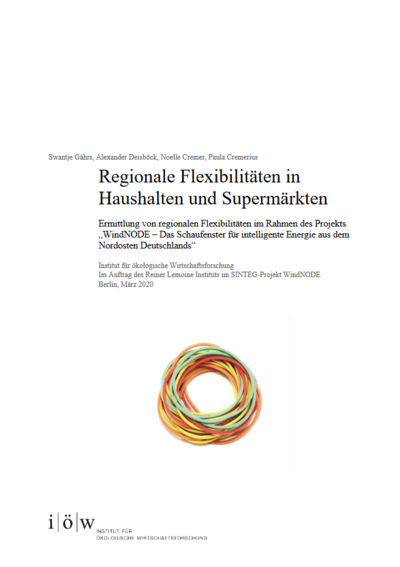Regional flexibility in households and supermarkets Final report
Using a simulation, the IÖW assessed the potential that private households and businesses in the form of supermarkets have to use electricity flexibly and how the restrictions can be dealt with. The results served to enable the Reiner Lemoine Institute to incorporate and compare this potential for the regions of Anhalt-Bitterfeld, Wittenberg and Dessau-Roßlau in their own simulations for the optimal timetable determination of power plants, storage facilities and flexibility. The data from the simulation are published as annual load profiles for the municipalities in the Anhalt region and for three typical supermarkets as an annex to this publication.
In summary, it can be said that both households and supermarkets have flexibility potential from a technical point of view. In the supermarkets, these are primarily in the area of cooling and air conditioning, in households it is also the refrigerators and electricity consumers from the white goods area. However, previous studies on the flexibilities that can actually be called up show that good technical solutions are required for this, since the effects of participation among consumers quickly dwindle and the flexibilities are more difficult to raise in the long term.
This report provides an insight into the technical flexibility potential, its integration into the system and the underlying business models and incentive systems. In addition, the status of acceptance of such technical and economic flexibility solutions is revised based on the literature, and the procedure for simulating consumption for households and supermarkets as well as the assessment of flexibility is presented.



